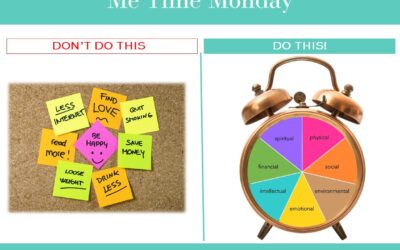 July is Sandwich Generation Month celebrating the 24 million Americans who are literally sandwiched between caring for two generations. Representing approximately 38 percent of all caregivers, Sandwich Generation members are still parenting children living at home while they also care for older parents who now need more help.
July is Sandwich Generation Month celebrating the 24 million Americans who are literally sandwiched between caring for two generations. Representing approximately 38 percent of all caregivers, Sandwich Generation members are still parenting children living at home while they also care for older parents who now need more help.
Because Sandwich Generation caregivers tend to be in their 40s, 50s and even 60s, seven out of 10 are also juggling a career along with child rearing and caregiving. With so many balls in the air, the Sandwich Generation caregivers often feel overwhelmed, burned out and stressed to their limits. These caregivers are caught in a three-ring circus of children, career and caregiving, and they are the star juggling act. At some point, the ball that gets dropped is the one that says self-care.
According to the National Alliance for Caregiving, the typical Sandwich Generation caregiver profile is:
- 48-year-old woman
- Cares for her 74-year-old mother
- Has children under 18 at home
- Married and works either full or part-time
- Spends up to 10 percent of the household annual income on care-related costs for her parent
- Suffers from stress and burn-out and often some guilt
- Lack of time for self results in health impacts like insomnia, poor nutrition, little or no exercise, missed doctor or dental appointments and ultimately ongoing stress and even depression
The familial responsibilities can be overwhelming – soccer schedules and after school homework for the kids, doctor appointments or emergency calls from your mom at all hours, your husband feeling neglected, your boss feeling like you are slacking, your friends feeling like you dropped off the face of the earth (and some days you wish you could). The balls you are juggling feel more like 50-pound weights.
Sandwich Generation and Stress
Unfortunately when it comes to health risks – Sandwich Generation female caregivers are more at risk. Our society has long held that women traditionally fill the caregiver role – in fact 66 percent of all caregivers are women. While more and more men are becoming primary caregivers, most are backing up a wife who is the multi-tasking manic. Because half of the U.S. workforce is women, men are picking up the slack in caring for the kids or managing some of the household chores while a wife cares for her mom or dad. But, the emotional and often physical toll of caregiving still falls to women and stress becomes their constant companion. This stress comes from being S-T-R-E-T-C-H-E-D way too thin in all your responsibilities. Your obligations are overwhelming and everything is a priority.
In their book So Stressed, Dr. Stephanie McClellan and Dr. Beth Hamilton found that the evolution of women’s biology over the last 100 years have not caught up with the expanded roles that women play in today’s world including motherhood, career woman and caregiving. They further explain that the advances of communication technology while helping us in some areas of life have actually negatively impacted our bodies’ defenses to protect and heal because the constant disturbance of our peace with texts, emails or cell phone calls puts us on high alert at all times and actually isolates us rather than connects us.
Me Time Monday
One of the ways to de-stress is through Me Time Monday videos and tips created by the Caregiving Club as part of the awareness and education effort for the Caregivers’ Monday campaign from The Healthy Monday non-profit organization. A study from the Commonwealth Fund shows that family caregivers are twice as likely as the general population to develop multiple chronic illnesses earlier in life, partially linked to the prolonged stress that can be common when you are a caregiver. The Monday Campaigns public health initiative started in 2005 in association with Columbia Mailman School of Public Health, Johns Hopkins Bloomberg School of Public Health and Syracuse Newhouse School of Public Communications. It is based on research by Johns Hopkins showing that Monday has special significance as the beginning of the week – a critical unit of time when planning our lives. The research indicates that more people are likely to start and stick to a new plan on Monday rather than any other day of the week – whether it’s beginning a new diet, ceasing to smoke, scheduling doctor appointments or starting a new exercise regime. By joining together with the Caregivers’ Monday campaign effort, Caregiving Club underscores its mission to help caregivers balance self-care while caring for a loved one.
Circle of Friends
Sandwich Generation caregivers struggle to find the minutes needed for Me Time but there are online communities where they can find volunteer help so they can get a break. In many ways when a crisis event happens, caregivers are surrounded with well-meaning family and friends who ask, “What can I do to help?” Most caregivers don’t have a list in hand to give to someone with exactly the kind of help they need. In addition, coordinating all these requests is beyond the scope of reason for any caregiver at that moment. Until now. Online sites including Lotsa Helping Hands, CaringBridge and CareZone, have been created to help caregivers get the support and the break they need and give family and friends a place to create a “circle of support.”
“More than one million volunteers have joined Lotsa Helping Hands private communities to perform millions of tasks including: meal delivery for a care recipient or a caregiver’s family if they are busy with care-related duties; laundry; providing rides for seniors to the doctor or to get the kids to soccer if a caregiver has other responsibilities,” says Brooks Kenny, chief marketing officer for Lotsa Helping Hands. They also partner with more than 50 non-profit organizations, such as the Alzheimer’s Association and the National Family Caregivers Association. “Whatever, wherever, whenever the caregiver cannot get to something the circle of care community volunteers fill that gap by performing that task – all from a very detailed online Health Calendar that was created with the input of professional nurses and family caregivers.” Lotsa also recently launched their “Open” communities where local community residents can volunteer to help a caregiver and their family even if the volunteer does not personally know the family.
Caregivers I have talked to often say their caregiving is a “labor of love.” This July as we celebrate Sandwich Generation caregivers, let’s labor to give them some love back by lending a helping hand, a shoulder to cry on or a voice at the other end of the line that will just listen.




Today’s sandwich generation faces a big challenge. But with help from those around you and a little preparation, caring for three generations (don’t forget yourself!) is manageable, and can even be rewarding.
Find a Griswold Home Care near you! 888-871-6336
Kimberly – thank you for acknowledging the Sandwich Generation of caregivers. I will be doing a Webinar for Lotsa Helping Hands on Wednesday, September 12 about the challenges of the Sandwich Generation – check back on our site or our Caregiving Club Facebook page in the next week or so for time and call-in information – I hope you can join us!
Sherri
I was suggested this blog via my cousin. I am not certain whether or not
this put up is written by means of him as no onee ese understand such
specifiesd approximately my problem. You’re wonderful!
Thanks!
sandwichINK – thank you for the support! Please check out the Webinar I will be doing for Lotsa Helping Hands on Wednesday, September 12 about the Sandwich Generation – I hope you can join the discussion! (info to be posted to this Web site and our Caregiving Club Facebook page next week). Thanks, Sherri